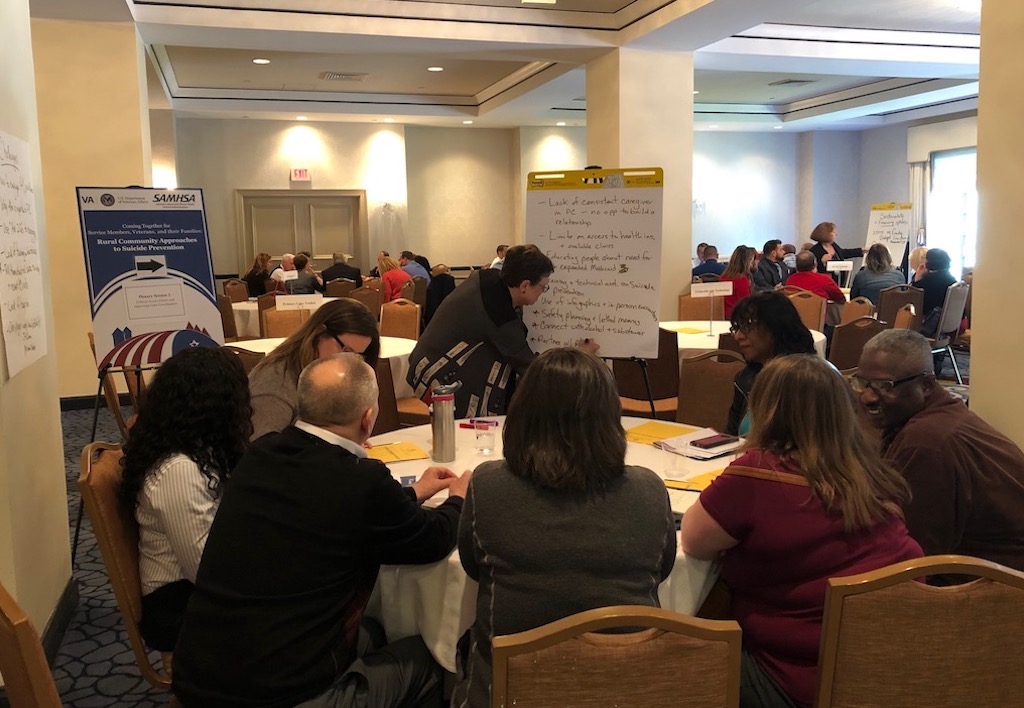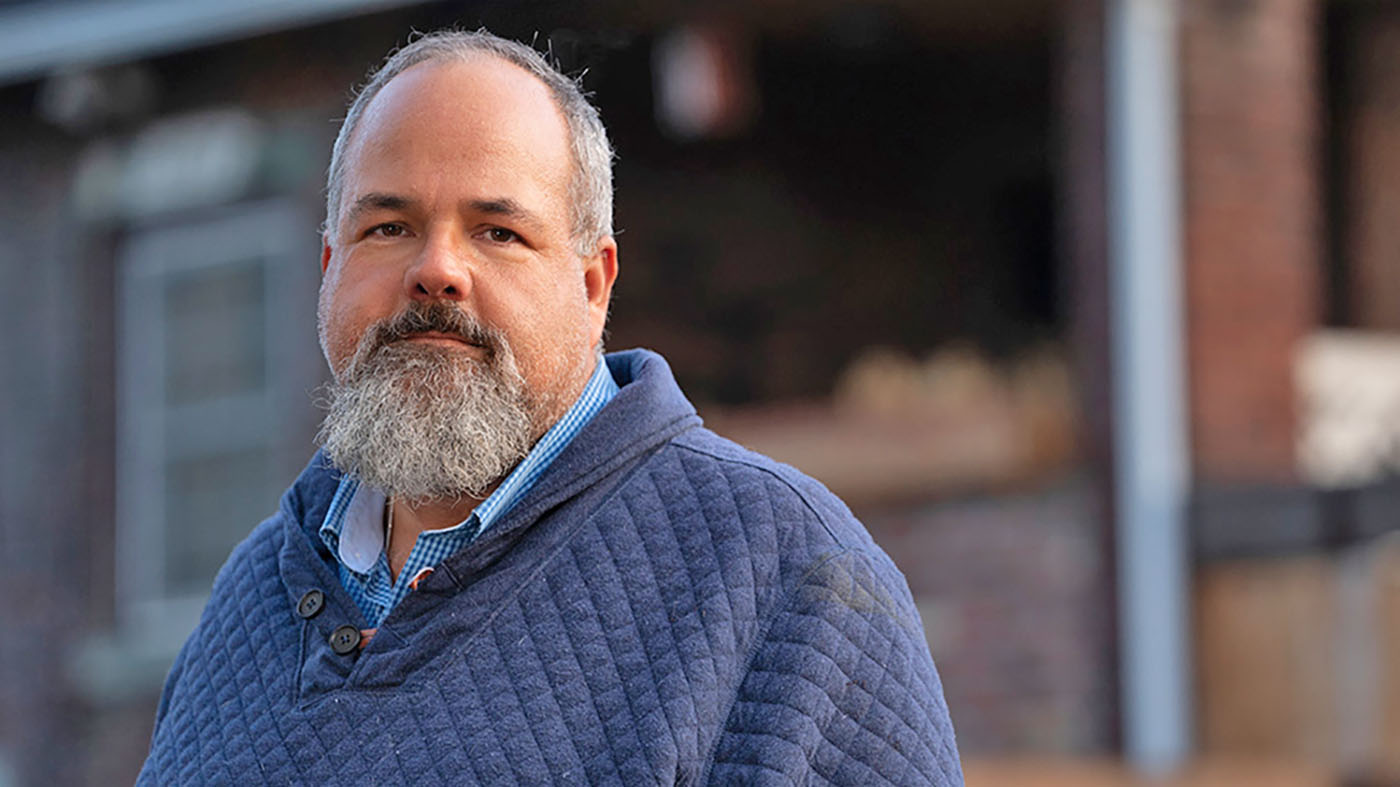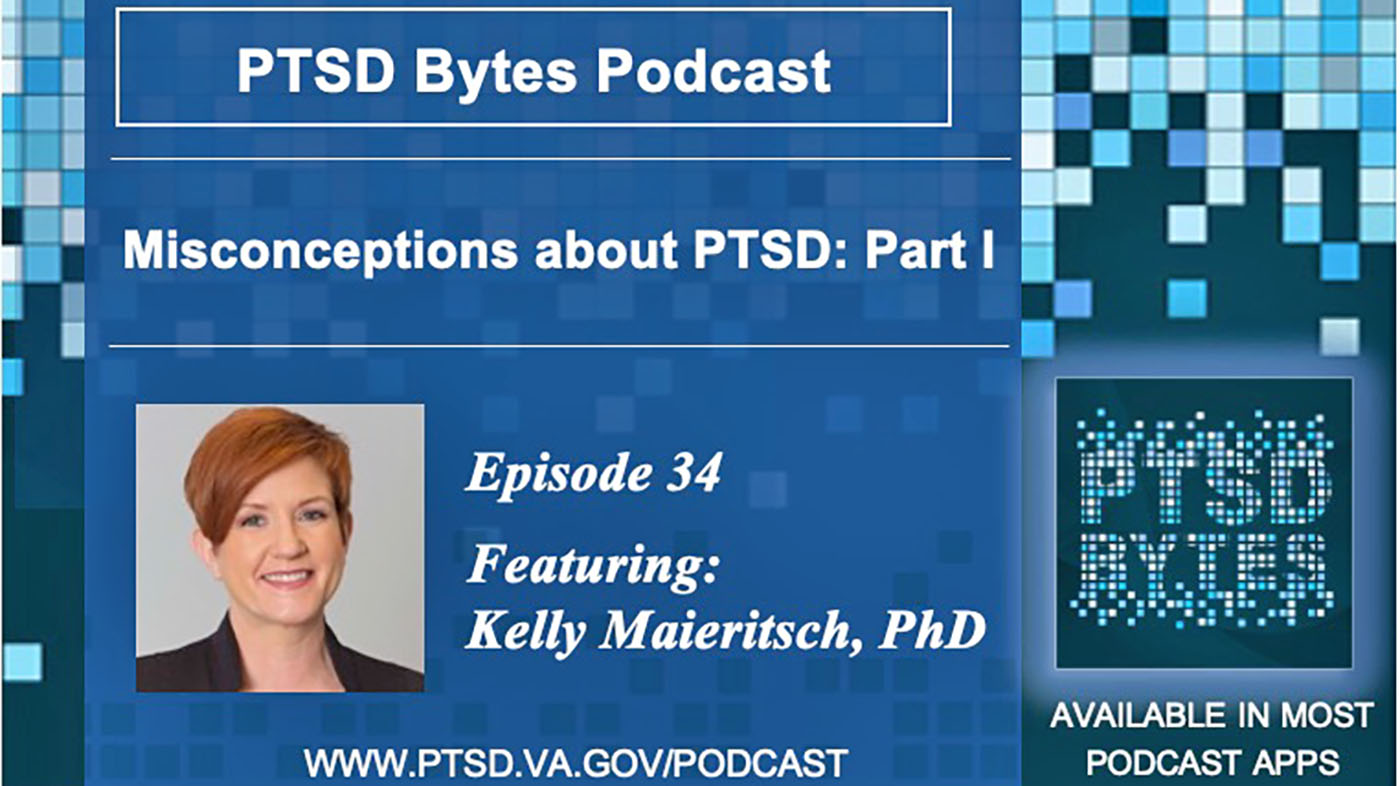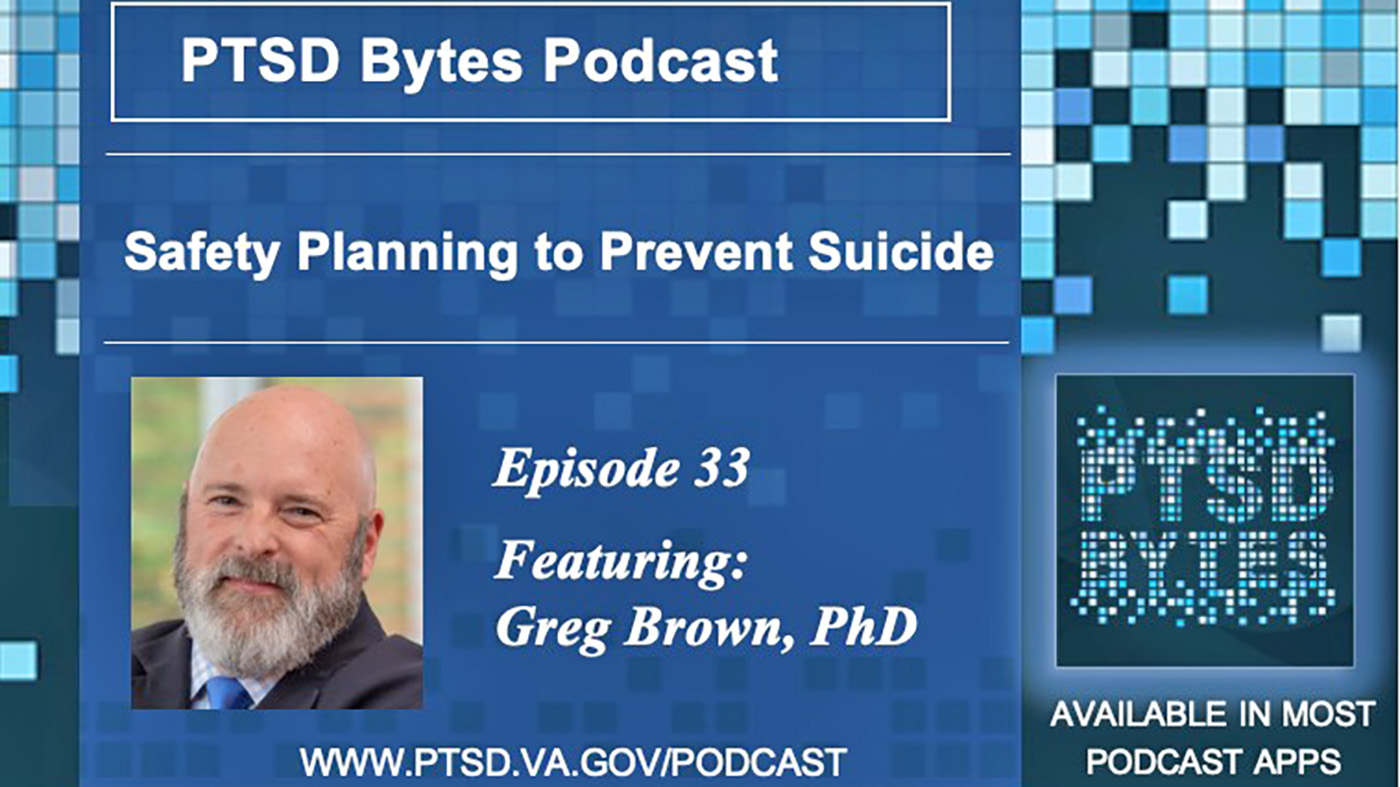VA and the U.S. Department of Health and Human Services’ Substance Abuse and Mental Health Services Administration (SAMHSA) met on April 16–17 in Washington, D.C., for a conference titled Coming Together for Service Members, Veterans, and their Families: Rural Community Approaches to Suicide Prevention.
The conference convened representatives from teams participating in the Mayor’s Challenge and Governor’s Challenge. The goal of these efforts is to eliminate suicide by using a comprehensive public health approach to suicide prevention that empowers communities to take action. The teams participating in the challenges receive education, training, and support for implementing Veteran suicide prevention strategies at the community level.
“Suicide prevention is a top priority at VA,” said Wendy Lakso, acting deputy Suicide Prevention Program director for VA’s Office of Mental Health and Suicide Prevention. “Coordinated effort at the local level is key to reaching all Veterans and preventing Veteran suicide.”
The Rural Community Approaches to Suicide Prevention conference is one of two conferences VA and SAMHSA will provide to Mayor’s Challenge and Governor’s Challenge teams this year. The topic of this conference was selected based on feedback from the participating teams in the challenges.
Twenty-four cities and counties are participating in the Mayor’s Challenge and seven states are participating in the Governor’s Challenge. In March 2019, seven of the Mayor’s Challenge teams came together for their first policy academy in Arlington, Virginia. Teams created plans to implement the National Strategy for Preventing Veteran Suicide, which provides a framework for identifying priorities, organizing efforts, and contributing to a national focus on Veteran suicide prevention.
“We know that rural Veterans have an increased risk for suicide,” Lakso said. “VA works with communities at the local level to ensure Veterans living in rural areas nationwide have access to lifesaving resources and support.”
The conference featured plenary sessions and customized workshops with subject matter experts. During the working sessions, teams discussed opportunities and challenges for telehealth, transportation, caregivers, and primary care for rural Veterans. Plenary sessions and workshops focused on a variety of topics, including access to care, care coordination, substance use, economic support, partnering with caregivers and families, and creating protective environments in rural areas.
“Participating in this conference provided an opportunity to connect with subject matter experts in the suicide prevention field and network with individuals in communities across the country to understand how we can make a difference,” said Bill Harpel, Military Liaison, City of Clarksville, Tennessee Team Leader. “These connections are valuable because we are all working towards the same mission to prevent Veteran suicide.”
For more information on SAMHSA’s suicide prevention efforts, visit https://www.samhsa.gov/suicide-prevention/samhsas-efforts.
The health and well-being of our nation’s Veterans and former service members is VA’s highest priority. Guided by data and research, VA is working with partners, Veterans’ family members and friends, and the community to ensure that Veterans and former service members get the right care whenever they need it. To learn about the resources available for Veterans and how you can #BeThere as a VA employee, family member, friend, community partner or clinician, visit www.mentalhealth.va.gov/suicide_prevention/resources.asp.
If you or someone you know is having thoughts of suicide, contact the Veterans Crisis Line to receive free, confidential support and crisis intervention available 24 hours a day, 7 days a week, 365 days a year. Call 1-800-273-8255 and Press 1, text to 838255, or chat online at VeteransCrisisLine.net/Chat.
About the author: Aaron Eagan is the deputy director of operations and integration for suicide prevention within VA’s Office of Mental Health and Suicide Prevention.
Topics in this story
More Stories
Be ready before a suicide crisis by learning about resources that are available. You don’t have to face it alone.
In a two-part series, Dr. Colleen Becket-Davenport discusses some common myths surrounding PTSD with Dr. Kelly Maieritsch.
In this episode of the PTSD Bytes podcast, we speak with with Dr. Greg Brown, Philadelphia VA clinical psychologist, about how safety planning can prevent suicide.






